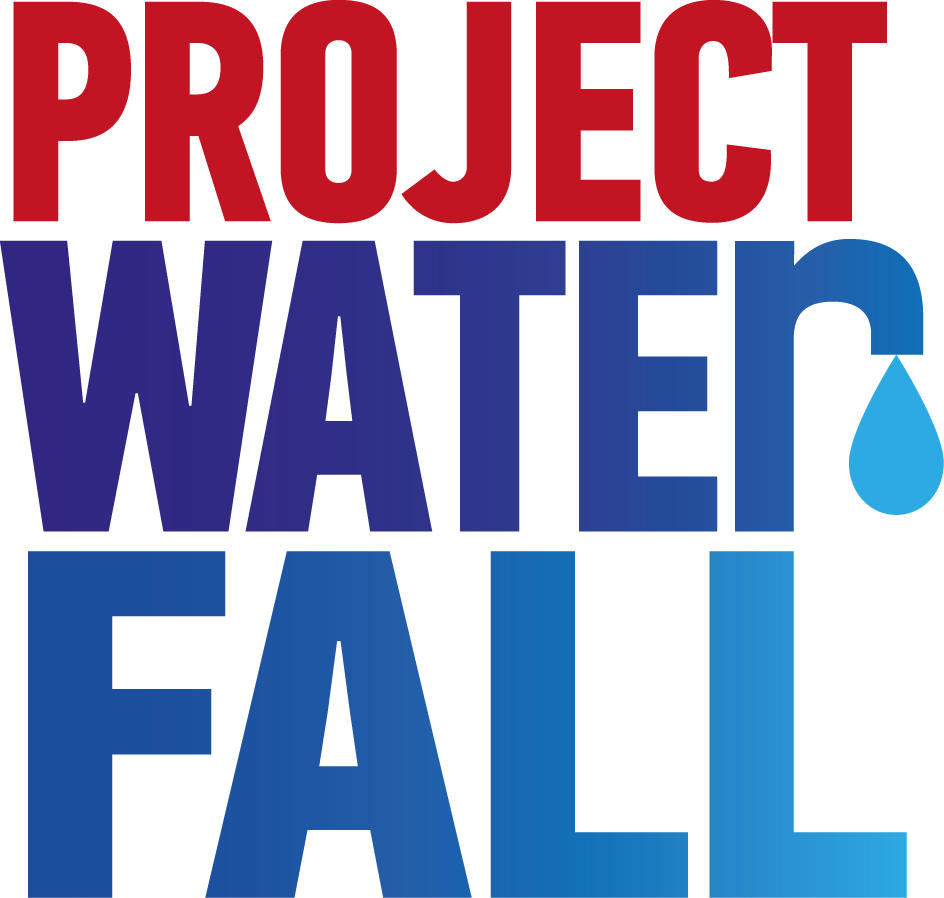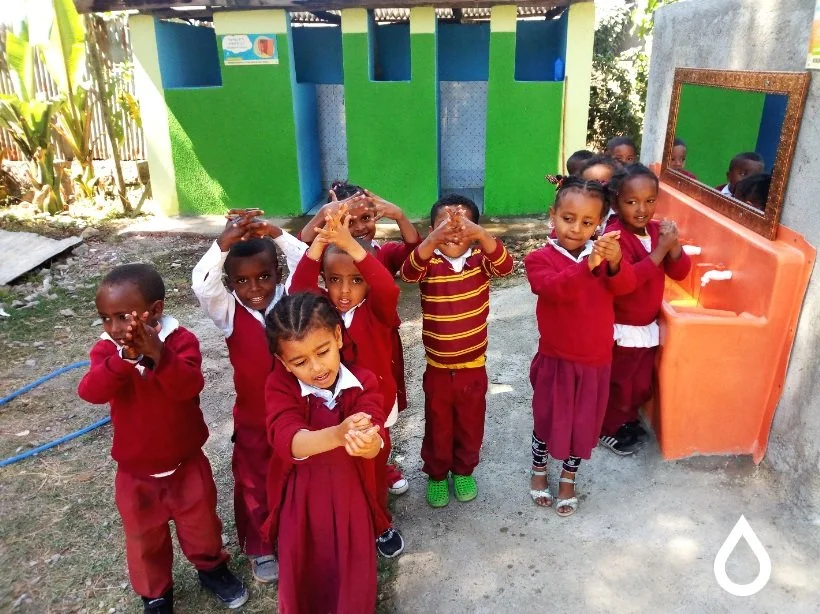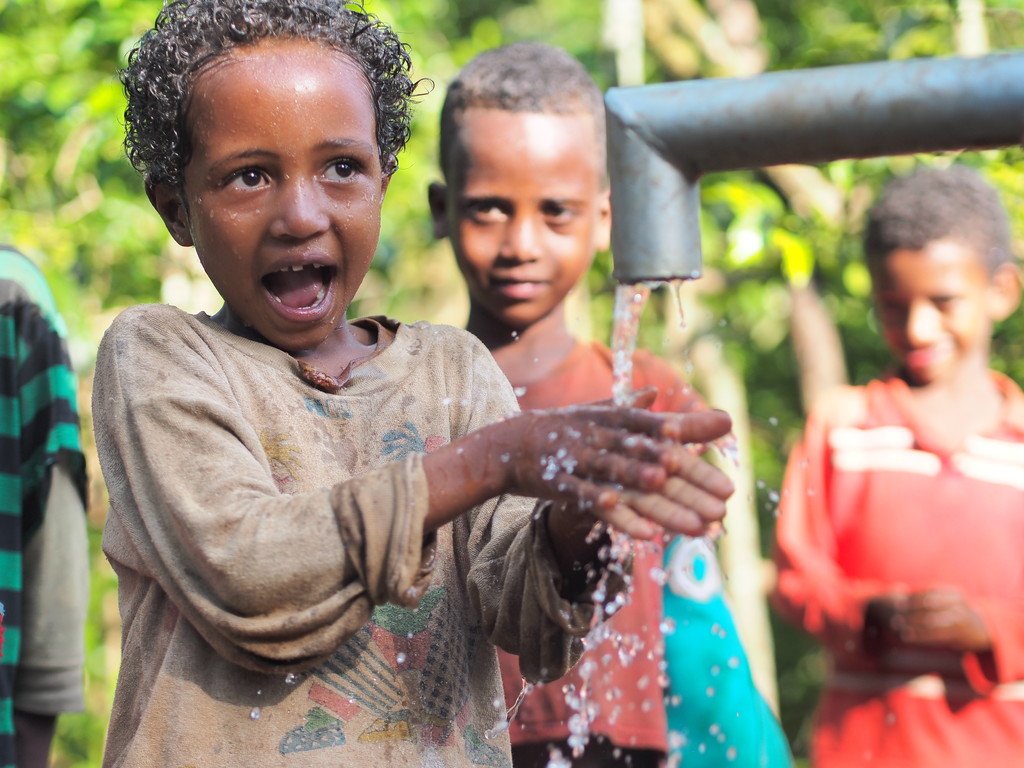Project Overview
The capital of Ethiopia, Addis Ababa, is a critical link in the country’s coffee supply chain and a major hub for coffee exchange and exportation. Over the past decade, Addis Ababa has experienced rapid growth and as a result there are roughly 100,000 children in Addis Ababa who live on the street, 25% of which are girls. Orphans have very little control over the water they drink, and the water they have access to is contaminated with parasites. Diarrheal diseases – though completely preventable – are still the second leading cause of death in Ethiopia.
Project Waterfall has partnered with Splash, who provide lifesaving water, hygiene and sanitation to schools and orphanages in Addis Ababa with the ambitious goal of reaching every orphanage and public school in the capital by 2020.
A series of projects were carried out to provide clean water to Kibebe Tsehay Orphanage; Ketchune Girls Orphanage; Wondmamach Kindergarten; Yeka Tafo Primary School; Yeka Tafo Kindergarten. Our partnership with Splash has created a deep impact, providing thousands of the neediest and most vulnerable children in Addis clean water, clean hands, and clean toilets through our sustainable intervention. The project has dramatically improved the water, sanitation and hygiene (WASH) conditions for 4,605 kids and adults, enhancing their overall dignity, health, and educational success. The Allegra Foundation and Splash have collectively impacted the lives of 5,256 kids and 288 staffin Addis Ababa!
Project Stats
Start date: 2015
Status: Completed, 2021
Community: Kibebe Tsehay Orphanage; Ketchune Girls Orphanage; Wondmamach Kindergarten; Yeka Tafo Primary School; Yeka Tafo Kindergarten
People reached: 5222
Delivery Partner: Splash
about Ethiopia
94,100,000 population
58% of rural lack access to water
77% of rural lack access to sanitation
29.6% live below the poverty line
Bringing clean water and sanitation to 5222 children in Addis Ababa Region of Ethiopia
Yeka Tafo Kindergarten
Yeka Tafo Kindergarten (KG) is located in the northeast suburbs of Addis Ababa in one of the largest and most populous districts. The school is situated in a semi-urban environment, which is being rapidly transformed by population growth and construction
The majority of the kids who attend the Yeka Tafo KG are from low-income socio-economicbackgrounds, with parents working mainly as government employees or daily laborers in construction and farming. Yeka Tafo KG is in a small, separate vicinity apart from Yeka Tafo Primary School. The Kindergarten currently uses temporary shelter classrooms built by parent contributions. Theheadmaster hopes to shift the school to a newly constructed building and facility with better access to water and facilities in the coming year.
Wondmamach Kindergarten
The majority of the kids who attend the Wondmamach Kindergarten are from low-income socio-economic backgrounds, with parents working mainly as vendors and day laborers.The school is neat and attractive with grass and trees, but lacks proper water, sanitation, and hygiene (WASH) facilities. Though relatively small in size, the staff's friendliness and attention to cleanliness demonstrates the school's determination to create a positive learning space for the children.
Yeka Tafo Primary School
Yeka Tafo Primary School is located in the northeast suburbs of Addis Ababa in one of the largest and most populous districts. The school is situated in a semi-urban environment, which is being rapidly transformed by population growth and construction. The majority of the kids who attend the Yeka Tafo Primary School are from low-income socio-economic backgrounds, with parents working mainly as government employees or daily laborers in construction and farming. Yeka Tafo Primary was established to accommodate the growing number of families with children who require primary education in Yeka. The school is run entirely on a government budget and lacks resources to promote a child-friendly learning environment. As a result, the school relies on parents and the local community to help out in efforts.
The Solution
Splash’s model reflects an integrated view of Water, Hygiene and Sanitation (WASH) as a three-fold approach to advancing health outcomes:
Clean, Safe Water: A water filtration system and child friendly hand washing station was installed in the orphanage.
Hygiene Education: Behavioral change around hand-washing and soap use is key. At the Kibebe Tsehay Orphanage, student-led hygiene clubs teach kids about personal hygiene and empower them to make it a positive-peer-pressure priority.
Sustainable sanitation: Once clean water is secured, Splash works through local partners to tackle sanitation challenges and improve toilet facilities for girls and boys.
The Future
We will be continuing to support Splash International with their ambitious aim to reach every orphanage, nursery and school in Addis Ababa with clean water and sanitation by 2020.







